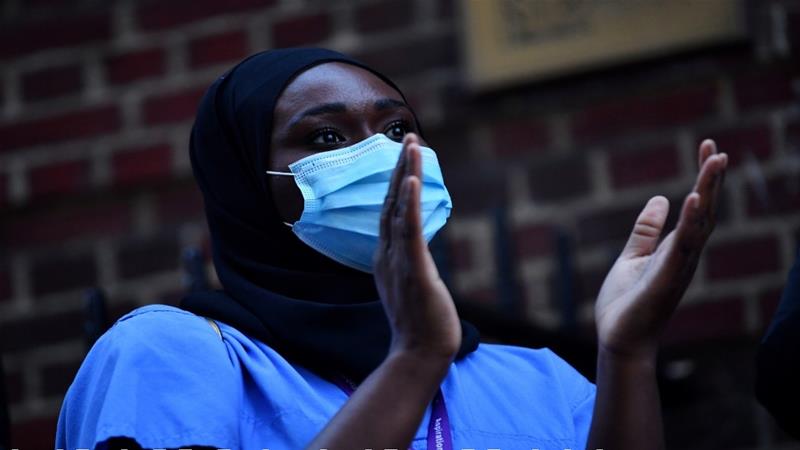Coronavirus patients from Black African backgrounds are dying in United Kingdom hospitals at more than three times the rate of white British people, according to the Institute for Fiscal Studies (IFS).
Its report on Friday comes amid growing evidence that ethnic minority patients and front-line workers are far more likely to suffer serious consequences from the epidemic in terms of health.
“After stripping out the role of age and geography, Bangladeshi hospital fatalities are twice those of the white British group, Pakistani deaths are 2.9 times as high and black African deaths 3.7 times as high,” the IFS said.
“The Indian, black Caribbean and ‘other white’ ethnic groups also have excess fatalities, with the white Irish group the only one to have fewer fatalities than white British.”
The data was alarming because, as the IFS noted: “While many minority groups live disproportionately in areas such as London and Birmingham, which have more COVID-19 deaths, most minorities are also younger on average than the population as a whole, which should make them less vulnerable.”
But minorities’ exposure to infection and health risks, including mortality, and their increased likelihood of loss of income, made them more vulnerable.
About 75 percent of medical and care workers who have so far died of coronavirus have been from minority backgrounds.
In April, the Intensive Care National Audit and Research Centre (ICNARC) said a third of critically ill COVID-19 patients in the UK were from Black and Minority Ethnic (BME) backgrounds.
Last month, after calls for an inquiry grew, the right-wing Conservative-led government announced a formal review into why COVID-19, the disease caused by the coronavirus, appears to disproportionately affect BME communities in the UK.
Later, the main opposition Labour Party announced its own review.
“The unequal effects of the COVID-19 crisis on different ethnic groups are likely to be the result of a complex set of economic, social and health-related factors,” said the IFS.
“Understanding the role of each of these will require a better understanding of the virus itself, more data than are currently available, and additional research.”
SOURCE: AL JAZEERA NEWS

